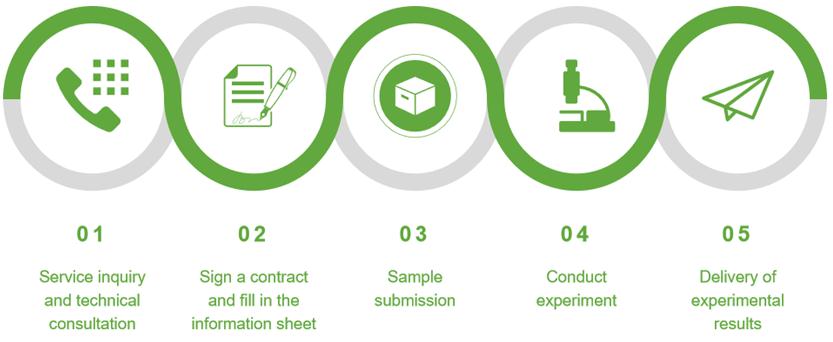
Agricultural phage display technology is biotechnology that inserts DNA sequences of exogenous proteins or polypeptides into the appropriate positions of the structural genes of phage shell proteins, which is the expression of the exogenous genes with the expression of the shell proteins. At the same time, the exogenous proteins are displayed on the surface of the phage with the reassembly of the phage. Subsequent screening of the phage library with specific proteins leads to rapid acquisition of antibodies with high affinity to the protein. Botanical and biological experts can use this technology to control diseases in crops.
Lifeasible's phage display technology service fuses exogenous peptides and phage capsid proteins on the phage surface for high-throughput screening and enrichment. It characterizes clones for the desired function, including antibodies, antibody fragments, peptides, cDNAs, etc. Lifeasible provides a professional one-stop service to meet your practical needs.
The classical method is to incubate a solid phase or liquid phase antigen with an antibody library. After several rounds of "adsorption-elution-amplification", the specific antibody can be enriched. Generally, screening of purified antigens is relatively simple and can be done directly by solid phase and liquefaction screening. For non-purified antigens, the screening process is a little more complicated and requires other tools. For example, the magnetic bead activated cell separation method, with the help of magnetic beads, uses antigen-positive cells wrapped in the addition of antigen-negative cells. When the phage library to be screened is added, the specifically bound antibodies are adsorbed on the positive cells. They can be effectively isolated by the magnetic beads.
Experimental report (experimental protocol, raw data, etc.), cDNA of antibody gene fragments.
It takes 3-10 days.

You can contact us by email, and we will arrange for a staff to contact you as soon as possible!